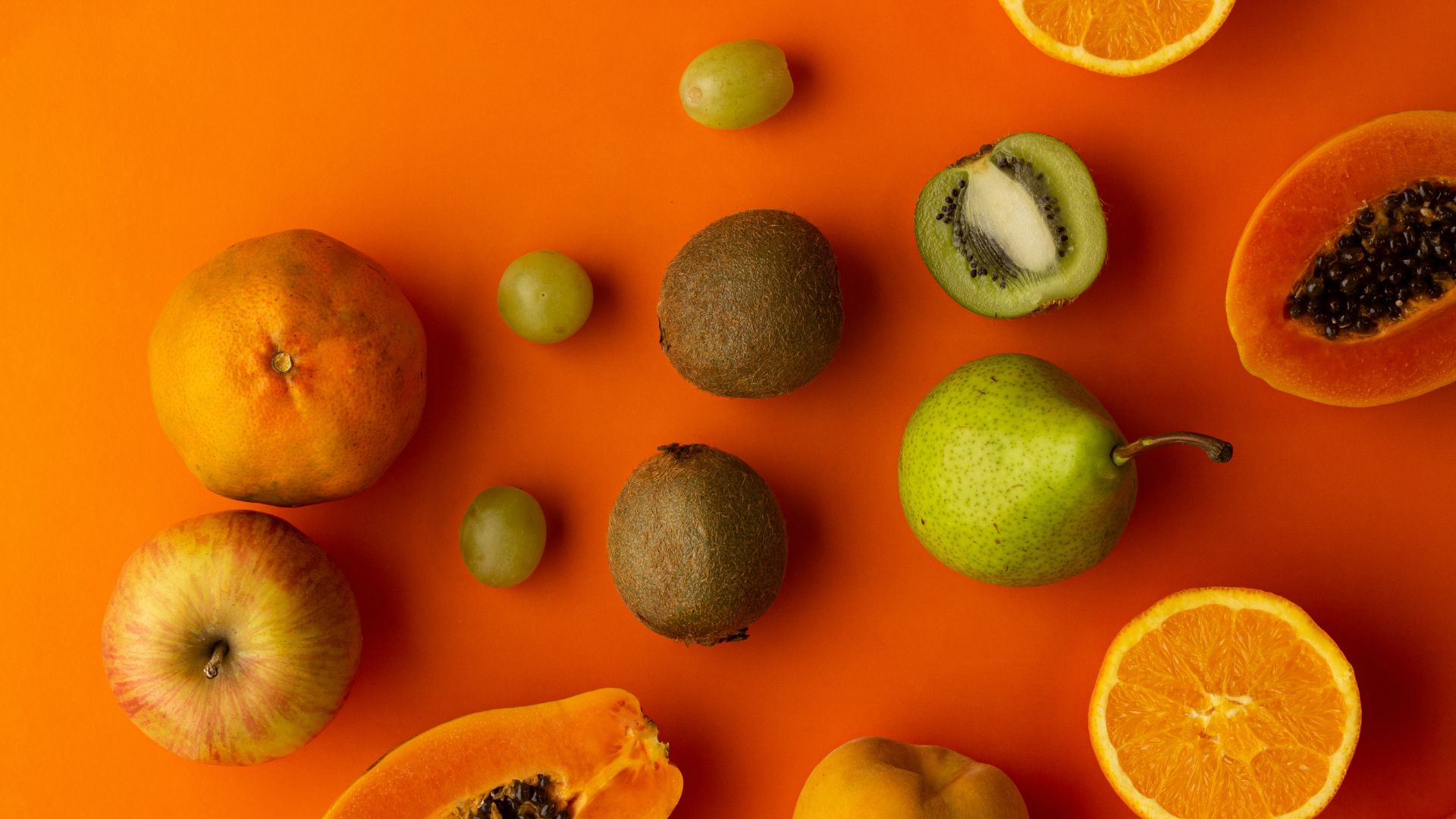Fasting can be tough—low energy, hunger pangs, and that constant struggle to stay hydrated. I’ve been there! But here’s the secret: eating the right fruits for fasting can make all the difference. The right fruits will fuel your body, improve digestion, and prevent those awful energy crashes.
Want to know exactly which fruits will keep your fast smooth and successful? I’ve got you covered! Keep reading to find the ultimate list of fruits that will help you stay strong, hydrated, and energized from start to finish. Let’s dive in!
Fruits for Fasting
Fasting is tough if you don’t eat the right foods before and after. I’ve learned that fruits, like papayas, apples, and oranges, can make fasting so much easier, as they keep the body fueled. Let’s now talk about all the top fruits to eat when fasting:
Papaya
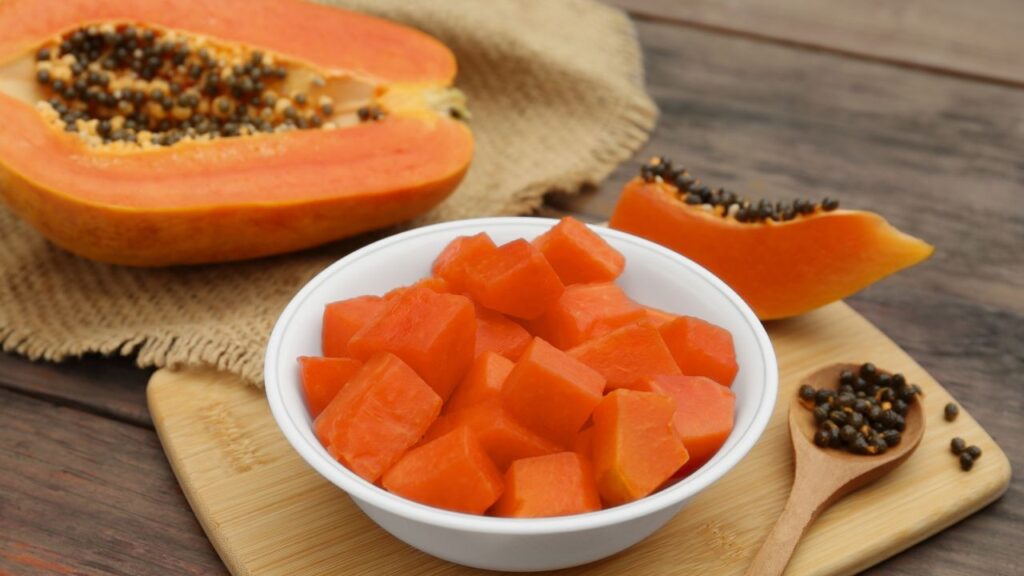
I always reach for papaya when I’m fasting. It’s light, refreshing, and works wonders for my digestive system. If you’ve ever felt bloated or sluggish after breaking a fast, papaya can fix that. It’s full of enzymes, like papain, that aid digestion, making sure food moves smoothly through the stomach. Some studies even say papaya may lower the risk of chronic diseases like heart disease and diabetes.
That’s not all. One of the reasons I love papaya is its healing benefits. When I fast, I want my body to recover and feel good, and papaya helps with that. It’s packed with essential nutrients like vitamin C, folate, and fiber, all of which help the body heal and stay strong.
Another thing I’ve noticed is that papaya helps maintain nutritional balance during fasting. It keeps my gut health in check because of its fiber, which feeds good bacteria.
Papaya is also a natural energy booster. It might not have as many calories as a banana, but it still helps keep my energy levels steady. Plus, it has branched-chain amino acids, which support muscle recovery—something really important if you’re fasting and working out.
Apple
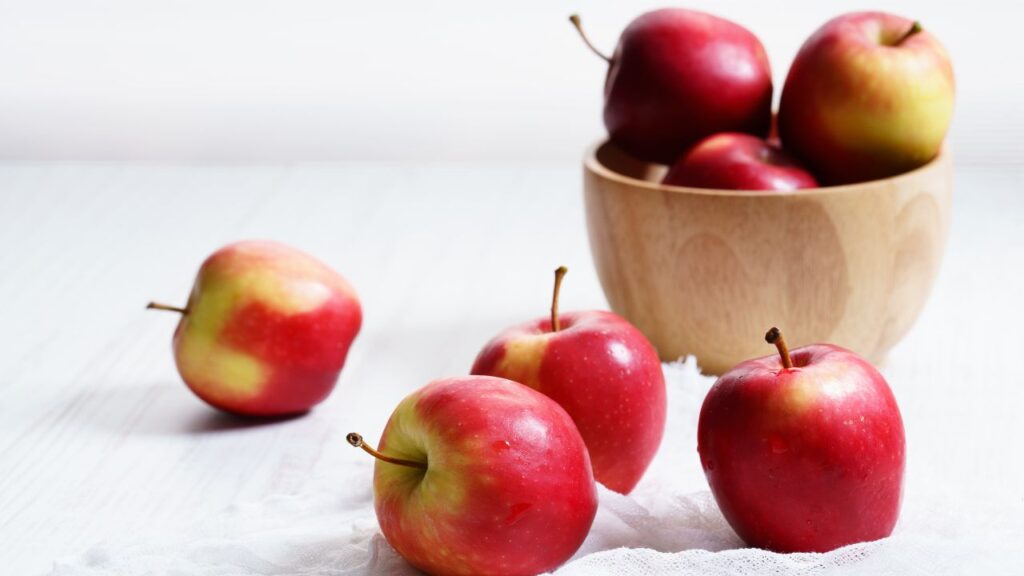
Apples are another fruit I always rely on during intermittent fasting. They’re sweet, and crunchy, and keep me full for a long time. One thing I love about apples is that they help regulate blood sugar levels. This is super important when fasting because you don’t want to feel dizzy or weak from a sugar crash.
There’s more. Apples are high in fiber and water, which makes them filling but light on the stomach. A registered dietitian would tell you that apples are part of a nutritious diet because they provide vitamins, minerals, and antioxidants—all without too many calories.
Is that all? Nope. Apples also support healthy digestion. I’ve noticed that eating an apple before breaking my fast helps everything go smoothly. Plus, they pair well with other fruits, so I often add them to smoothies or fruit bowls.
One of the best things about apples is that they help control hunger pangs. When I start craving food during fasting, I remind myself that an apple will keep my taste buds happy without ruining my fast. It’s amazing how such a simple fruit can benefit the human body so much! So, if you’re starting intermittent fasting, go for apples.
Orange

I can’t fast without oranges. They’re one of my favorite citrus fruits because they’re refreshing and full of vitamin C. Fasting can weaken the immune system, but oranges help keep it strong. Plus, if I ever get a sore throat while fasting, oranges help soothe it.
I also love drinking orange juice after a long fast. It wakes me up, hydrates me, and gives me a natural sugar boost. Another reason I love oranges is their high water content. Fasting can make you dehydrated, but oranges help with that. They’re about 86% water, which makes them perfect for keeping hydration levels in check.
Grapes
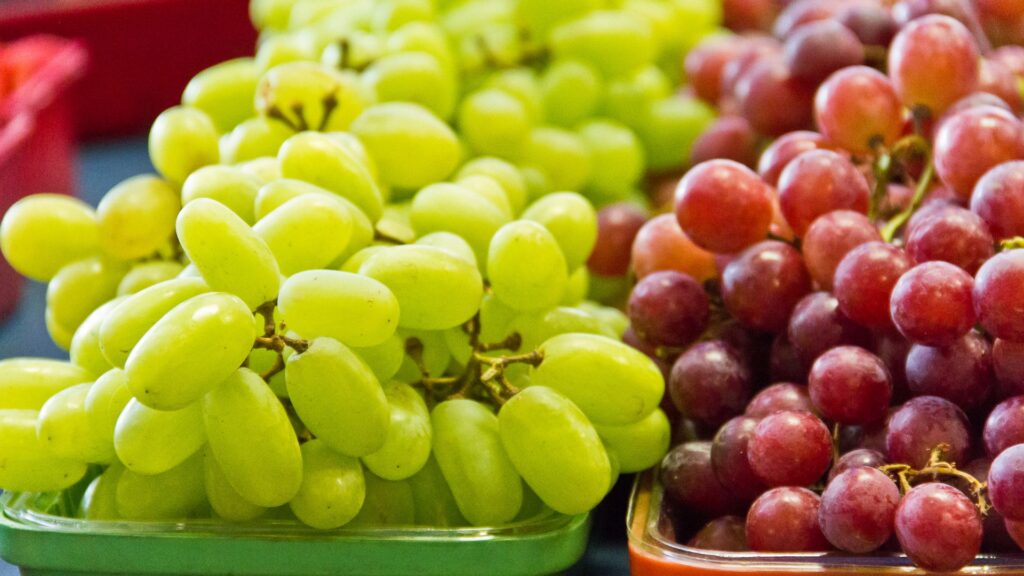
I love using grapes in fruit combinations because they go well with almost everything. They also have tons of overall health benefits—from improving heart health to supporting digestion. When I’m in my fasting window, I always keep some grapes nearby.
If you’re doing juice fasting, grapes are perfect. They blend well with other fruits and provide a natural energy boost. Plus, their sugar content is balanced, so they don’t cause energy crashes. Grapes also help with electrolyte balance, which is crucial when fasting for long hours.
Another reason I love grapes is that they support healthy digestion. Their fiber keeps my stomach happy and prevents bloating. That’s why I always include them in my fasting regimen.
If you’re fasting for weight loss, grapes can help. They speed up metabolism, which means your body burns fat more efficiently. When you finally go back to normal foods, adding grapes to your diet can help maintain your results.
Watermelon

When I follow certain fasting methods, I always include watermelon. It’s one of the best fruits to eat because it can keep you refreshed. Since it has a high water content, it helps me stay hydrated, which is super important when fasting for long hours.
Plus, if you’re looking to lose weight while fasting, you’ll want to eat melons since they have fewer calories but still keep you full. This makes them a great option for a fruit-fasting diet.
And let me tell you: Watermelon is also great if you’re starting intermittent fasting. Since it’s light on the stomach and easy to digest, it won’t make you feel sluggish when you break your fast. Plus, it pairs well with other fruits and vegetables, making it easy to create delicious fruit salads. I often eat it with leafy greens and coconut water.
Kiwi

Kiwi is one of my go-to healthy foods when fasting. Since it’s loaded with vitamin C, it helps keep my immune system strong, which is especially helpful when fasting for long periods. In addition to it, kiwi helps provide essential nutrients while keeping you full.
Another reason to love kiwi is its antioxidant benefits. When I fast, I want to cleanse my body and get rid of toxins. Kiwi helps with that by fighting off free radicals and keeping my body refreshed. This is crucial in preventing cardiovascular diseases.
In short, Kiwi is a great choice for anyone trying to maintain a nutritional balance while fasting. To enjoy full benefits, make sure to eat slowly. Since it’s full of fiber, it helps my stomach adjust without causing bloating. So, if you’re into your fasting period, keep kiwi in mind!
Bananas
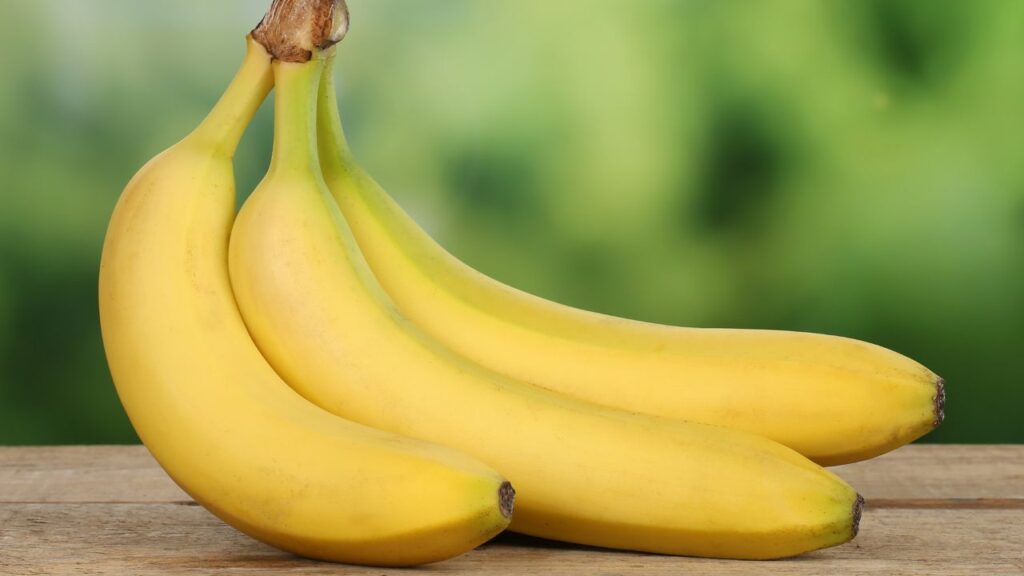
Bananas are a fasting must-have for me. They’re super filling, easy to digest, and perfect for maintaining energy levels. I usually eat a banana right before my fasting window begins to keep my energy steady throughout the day. Plus, when I’m on a just fruit diet, bananas are my go-to because they keep me feeling full longer without making me sluggish.
Another reason to eat bananas is that they contain branched-chain amino acids. Research suggests that these are important for muscle recovery, which is helpful if you’re fasting and exercising. In addition to this, if you’re following a strict fasting regimen, bananas help keep your calorie intake in check. They’re naturally sweet, so they satisfy cravings.
Wait. There’s more. Bananas are one of the best fruits to eat on an empty stomach—they don’t cause discomfort and actually help with digestion. Amazing, right?
Strawberries

Strawberries are one of the best fruits to eat when fasting, especially if you’re focusing on fat loss. They help the body burn fat more efficiently, making them ideal for losing weight. Plus, they’re low in calories but packed with nutrients, making them perfect for a fruit-fasting diet.
Another reason strawberries are perfect for a fruit fast is that they’re packed with fiber and water. That’s why they’re light yet filling. On top of that, they work well with different food groups. They go great with nuts, seeds, raw fruits, and even healthy fats like avocado.
So, grab a handful of strawberries and eat them with certain foods to make your taste buds happy.
Raspberries
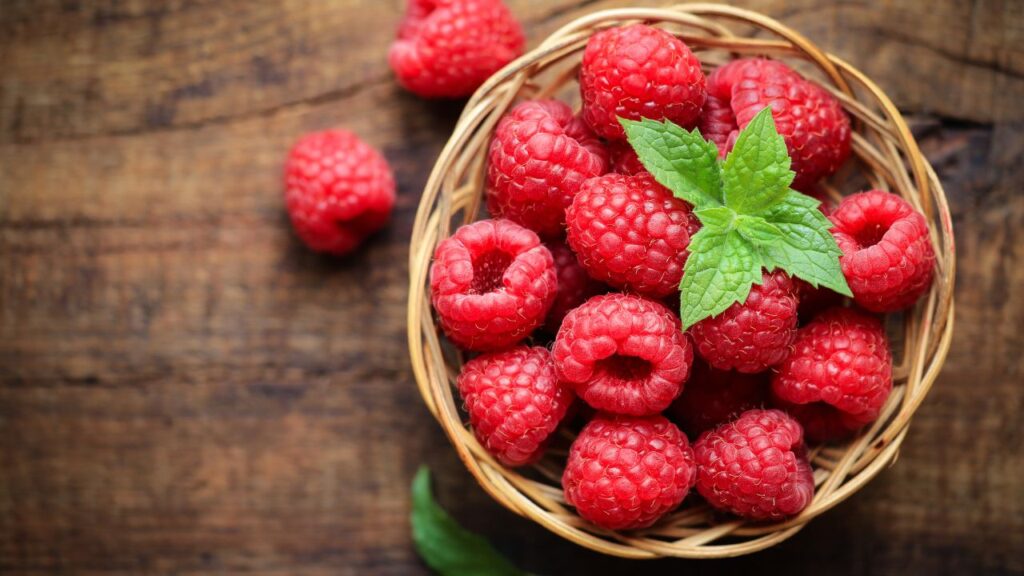
Raspberries are my secret weapon when doing extended fasting. In fact, When I’m only eating fruits, raspberries always make it into my meal plan. But why? Well, they’re full of fiber, which keeps me feeling full longer. I also love that they’re one of the few fruits I can eat freely while following an alternate-day fasting plan. Since they’re light but satisfying, they make fasting so much easier.
If you’re focused on a balanced diet, raspberries are a great choice. They help regulate digestion and blood sugar, preventing energy crashes. Plus, they’re packed with antioxidants, which help deal with the increased risk of inflammation and disease.
I also make sure to drink plenty of water when eating raspberries. Why? To maintain hydration levels. Since they’re so high in fiber, staying hydrated helps prevent bloating. Remember this!
Blackberries
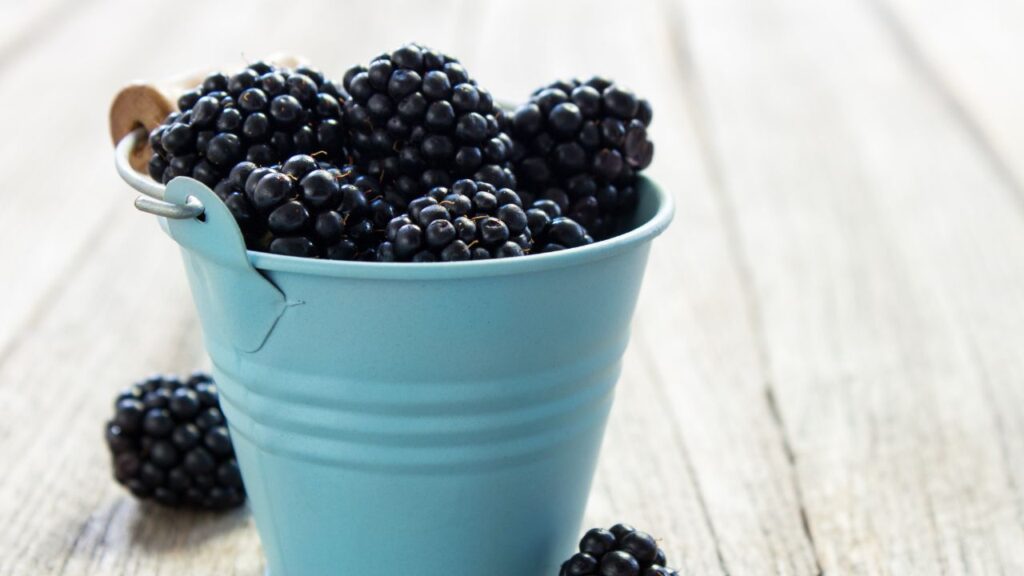
Let’s cut to the chase: Blackberries are a great choice to break a fasting period. They’re loaded with antioxidants, which help detox your body. Plus, they’re one of the best sweet fruits to eat. When I break a fast, I try to avoid processed foods and junk food.
Instead, I eat things like blackberries with bone broth, cooked vegetables, and lean protein. This helps my body transition back to eating without feeling sluggish. On top of that, since blackberries are easily digestible foods, they don’t upset the stomach, even after long hours of fasting.
But wait. It gets better. If you’re fasting for weight loss, they’re great because they help burn fat faster. So, add them to your healthy diet and start fasting now!
Conclusion
Fasting doesn’t have to be hard when you choose the right fruits. Whether you need hydration, energy, or better digestion, nature has got you covered. You can eat papaya and kiwi for easy digestion and gut health. Plus, have apples and bananas to stay full and energized. On top of that, oranges and watermelon keep your hydration levels high.
With the right fruits, fasting becomes a breeze! Try adding these to your routine and see how much better you feel.

